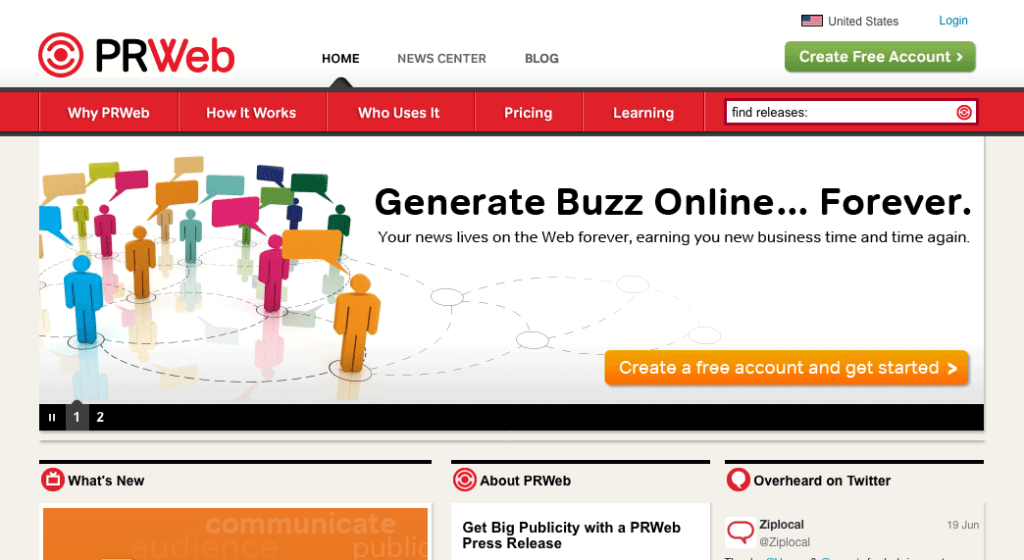Do Search Engines Frown Upon Paid PR Services?

In public relations, they have a saying; Advertising is what you pay for, publicity is what you pray for. Despite that, there are plenty of PR services offering to generate publicity for you in exchange for a cash infusion. In fact, PR is quickly becoming more effective than comparable advertising practices. After all, which would you rather have; a billboard proclaiming how great your product is, or a newspaper doing the same thing?
The problem is, just like with advertising, there are plenty of paid PR strategies that just don’t work, and many that hurt you as well. Do the search engines in general frown upon paid PR?
The answer is a qualified no. Google and the other search engines don’t care if you did your PR organically or if you paid for it; all they care about is whether it was done in a heavy-handed malicious way or in a legitimate way. Here are some strategies and where they fall on the spectrum.
Bad PR Strategy: Fake Positive Reviews
Shady PR companies will take a look at your online reputation and will see that you may have built up a few negative reviews. Even if you haven’t, they react the same way; time to flood the market with positive reviews. After all, wouldn’t you rather trust a company with 10,000 positive reviews over one with 5?
It’s easy for these companies to spend a few hundred dollars in a content mill, buying fake reviews from people who have never heard of your business before. They post these reviews over the course of a few days or weeks, and suddenly you have a great positive reputation. Right?
Unfortunately, users have grown pretty good at discerning which reviews are real and which are fake. Fake reviews tend to have certain shared qualities, and a bad PR group won’t take action to minimize those faults.
Good PR Strategy: Addressing Negative Reviews
Instead of addressing few reviews or negative reviews by flooding them out with fake good reviews, you can hire a company that will help you take legitimate proactive action. You can, for example;
- Encourage existing customers to leave positive, honest feedback. Real positive reviews can counteract negative reviews in sufficient numbers, and they’re left by people with real accounts.
- Reach out to people who have left negative reviews and ask them how you can make it right with them. Once you satisfy them, if you can, ask them to edit their reviews.
- Reach out to review platforms like Yelp and identify out of date negative reviews and ask for them to be removed. This doesn’t always work, but in some cases, when the review was left maliciously or the issue has been addressed, it can be removed.
Bad PR Strategy: Paid Spam Posts
Blog posts with links back to your site boosts your rankings, and they can boost your word of mouth as well. Getting yourself into a whole host of minor publications is like a gateway to getting yourself into more major publications. Build enough artificial publicity, and the real publicity will join the bandwagon.
Of course, it doesn’t work that way in the long term. You might get some basic boosts, but before your strategy has time to kick in, you’re left hanging with no alternative but to fix the mistakes you made. Google will penalize you for the paid, artificial links.
Good PR Strategy: Identifying Guest Post Opportunities
Rather than spam your link in posts around the Internet, a good PR company can research your niche and come up with ways to gain legitimate publicity. They can find blogs in your industry where a post might be valuable, and they can work with those bloggers to publish guest posts or get your site mentioned or reviewed normally.
Bad PR Strategy: Paying for Broad Advertising
Once again, you earn publicity; you pay for advertising. A PR agency that runs advertising for you is generally not running it properly, or if they are, they’re doing it in a way you might not anticipate. A real advertising agency will probably be able to do it better, with a higher conversion rate, because they’re focused on ads and not publicity.
It’s always possible that a PR agency will know how to advertise, so don’t discount them entirely out of hand. Even so, it’s likely that a real advertiser will have an easier and cheaper time of it than an agency that doesn’t focus on advertising primarily.
Good PR Strategy: Convincing the Media to Cover You
Rather than pay for advertising, a PR agency will go out and network with the movers and shakers on your behalf. They will contact newspapers, television shows, radio programs, bloggers and anyone else they can, to get the idea of your business out and about. More importantly, it gets positive word of mouth started and encouraged.
The Core of Good Paid PR
Public relationships are earned, not bought. You can pay for brand advocates to shout your praises all day, but people will see through them and won’t trust their unbiased opinion. A good PR agency will, instead, target people who are likely to become brand advocates on their own and approach them with trial products to encourage unbiased reviews.
Public relations are all about building trust, and you rarely do this with money. Instead, you use money to fuel the sort of customer outreach and service that encourages positive word of mouth.
PR is also all about the media. If you can’t convince the media to support your brand, no amount of money thrown at a PR agency will get the job done. PR groups plant the seeds; it’s up to the media to follow through.
In the end, no, the search engines don’t frown upon paid PR services. What they frown upon are the black hat search spam techniques that can come from PR sources, or from advertising sources, or from webmasters looking to abuse the system. There’s nothing inherently wrong with paid PR.

 ContentPowered.com
ContentPowered.com





